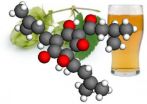(Press-News.org) Chemotherapy is one of the most common treatments for cancer patients. However, many patients suffer from serious side-effects and a large proportion does not respond to the treatment. Researchers from the Biotech Research and Innovation Centre (BRIC) and Center for Healthy Aging, University of Copenhagen, now show that the gene FBH1 helps turn up the effect of chemotherapy.
"Our results show that the gene FBH1 is crucial in order for some chemotherapeutics to become active in the body and kill the cancer cells. If we can find a feasible method to increase the activity of the gene, we can use our cells' own resources to improve cancer treatment, says associate professor Claus Sørensen who has lead the team of researchers behind the results.
Own gene helps chemotherapy fight cancer
The researchers have used a method called RNA interference to study whether some of the genes in our DNA are important for cancer cells to react to certain chemotherapeutics.
"By using the method to remove single genes from cancer cells and then exposing the cells to chemotherapy, we found that FBH1 is important for the effect of the chemotherapy. Actually, the presence of the gene was an absolutely requirement in order to effectively kill the cancer cells with the type of chemotherapeutics we have studied, says postdoc Kasper Fugger who has led the experimental part of the investigation.
Chemotherapy act by exposing cancer cells to a kind of extreme stress when they divide. The result is detrimental damage to the cells' DNA that cannot be repaired, causing the cells to die. The new results show that it is in fact FBH1 that contributes to the formation of DNA damage when treating with chemotherapy and this knowledge can be used to optimize cancer therapy.
Selection of patients for chemotherapy
In the last decade it has become clear that targeted treatment to individual cancer patients is crucial for an effective treatment with least possible side-effects. By assessing the presence of FBH1 in a tumour the doctors can get an indication of whether the patient will benefit from chemotherapy.
"Our results could help indicate that patients with low or no FBH1 in the cancer cells will not benefit from certain types of chemotherapy, but should be administered another type of treatment. So by using the genetic fingerprint of a tumour doctors can adjust the treatment to individual patients, says Claus Sørensen.
The next step - finding the FBH1 volume knob
The next step for the research team is to investigate the presence of changes, so-called mutations in FBH1. Identifying mutations rendering cancer cells resistant to certain chemotherapeutics can be used to target the treatment even better to individual patients. Another goal for the researchers is to find a way to turn up the activity of FBH1 in cancer cells.
"Our hope is to find a method to boost the activity of the FBH1 gene in cancer cells since this will make them more sensitive to chemotherapy. Alternatively, we may find a way to simulate an effect similar to that of FBH1, which can be used as additional treatment in order to sensitise cancer cells to chemotherapy. If we achieve this, more patients will benefit from the treatment, says Kasper Fugger.
### END
Researchers find gene that turns up effect of chemotherapy
2013-01-29
ELSE PRESS RELEASES FROM THIS DATE:
Hydrogen sulfide: The next anti-aging agent?
2013-01-29
Hydrogen sulfide (H2S) may play a wide-ranging role in staving off aging, according to a paper published online ahead of print in the journal Molecular and Cellular Biology. In this review article, a team from China explores the compound's plethora of potential anti-aging pathways.
"H2S has been gaining increasing attention as an important endogenous signaling molecule because of its significant effects on the cardiovascular and nervous systems," the team writes. The evidence is mounting, they note, that hydrogen sulfide slows aging by inhibiting free-radical reactions, ...
New OHSU research helps explain early-onset puberty in females
2013-01-29
BEAVERTON, Ore. - New research from Oregon Health & Science University has provided significant insight into the reasons why early-onset puberty occurs in females. The research, which was conducted at OHSU's Oregon National Primate Research Center, is published in the current early online edition of the journal Nature Neuroscience.
The paper explains how OHSU scientists are investigating the role of epigenetics in the control of puberty. Epigenetics refers to changes in gene activity linked to external factors that do not involve changes to the genetic code itself. The ...
Tomorrow's life-saving medications may currently be living at the bottom of the sea
2013-01-29
PORTLAND, Ore. – OHSU researchers, in partnership with scientists from several other institutions, have published two new research papers that signal how the next class of powerful medications may currently reside at the bottom of the ocean. In both cases, the researchers were focused on ocean-based mollusks – a category of animal that includes snails, clams and squid and their bacterial companions.
Sea life studies aid researchers in several ways, including the development of new medications and biofuels. Because many of these ocean animal species have existed in ...
Beer's bitter compounds could help brew new medicines
2013-01-29
Researchers employing a century-old observational technique have determined the precise configuration of humulones, substances derived from hops that give beer its distinctive flavor.
That might not sound like a big deal to the average brewmaster, but the findings overturn results reported in scientific literature in the last 40 years and could lead to new pharmaceuticals to treat diabetes, some types of cancer and other maladies.
"Now that we have the right results, what happens to the bitter hops in the beer-brewing process makes a lot more sense," said Werner ...
Annals of Internal Medicine early release article for Jan. 29, 2013
2013-01-29
Philadelphia, January 29, 2012 – The Center for Disease Control and Prevention's Advisory Committee on Immunization Practices (ACIP) announced its recommended 2013 adult immunization schedule that includes important updates to the pneumococcal, Tdap (tetanus, diphtheria, and acellular pertussis), and influenza vaccines. Because current vaccination rates are low, ACIP also urges health care providers to regularly assess patient vaccination histories and implement intervention strategies to increase adherence. This recommendation will be published in Annals of Internal Medicine, ...
Study finds significant microorganism populations in middle and upper troposphere
2013-01-29
In what is believed to be the first study of its kind, researchers used genomic techniques to document the presence of significant numbers of living microorganisms – principally bacteria – in the middle and upper troposphere, that section of the atmosphere approximately four to six miles above the Earth's surface.
Whether the microorganisms routinely inhabit this portion of the atmosphere – perhaps living on carbon compounds also found there – or whether they were simply lofted there from the Earth's surface isn't yet known. The finding is of interest to atmospheric scientists, ...
New research uncovers the neural mechanism underlying drug cravings
2013-01-29
Addiction may result from abnormal brain circuitry in the frontal cortex, the part of the brain that controls decision-making. Researchers from the RIKEN Center for Molecular Imaging Science in Japan collaborating with colleagues from the Montreal Neurological Institute of McGill University in Canada report today that the lateral and orbital regions of the frontal cortex interact during the response to a drug-related cue and that aberrant interaction between the two frontal regions may underlie addiction. Their results are published today in the journal Proceedings of ...
Hospital patient loads often at unsafe levels, physician survey says
2013-01-29
Nationwide, more than one-quarter of hospital-based general practitioners who take over for patients' primary care doctors to manage inpatient care say their average patient load exceeds safe levels multiple times per month, according to a new Johns Hopkins study. Moreover, the study found that one in five of these physicians, known as hospitalists, reports that their workload puts patients at risk for serious complications, or even death.
The research, reported in JAMA Internal Medicine, comes as health care systems anticipate an influx of new patients generated by the ...
Researchers find genes behind aggressive endometrial cancer
2013-01-29
New Haven, Conn. — In a major breakthrough for uterine serous carcinoma (USC) — a chemo-resistant, aggressive form of endometrial cancer, Yale researchers have defined the genetic landscape of USC tumors, findings that point to new treatment opportunities.
The collaborative team—which included researchers with expertise in gynecological cancer, genomics, and computational biology— identified a number of new genes that are frequently mutated in USC. The results of this comprehensive genetic analysis of USC are published in the Jan. 28 Proceedings of the National Academy ...
Slow-release 'jelly' delivers drugs better
2013-01-29
DURHAM, NC -- Duke University biomedical engineers have developed a new delivery system that overcomes the shortcomings of a promising class of peptide drugs – very small proteins – for treating diseases such as diabetes and cancer.
There are more than 40 peptide drugs approved for use in humans and more than 650 are being tested in clinical studies. One example is the hormone insulin, a peptide that regulates the metabolism of carbohydrates in the body and is used as a drug to treat diabetes.
Despite their effectiveness, peptide drugs cannot achieve their full potential ...

